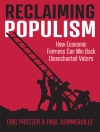There are few questions more central to understanding the prehistory of our species than those regarding the institutionalization of social inequality. Social inequality is manifested in unequal access to goods, information, decision-making, and power. This structure is essential to higher orders of social organization and basic to the operation of more complex societies.
An understanding of the transformation from relatively egalitarian societies to a hierarchical organization and socioeconomic stratification is fundamental to our knowledge about the human condition. In a follow-up to their 1995 book Foundations of Social Inequality, the Editors of this volume have compiled a new and comprehensive group of studies concerning these central questions. When and where does hierarchy appear in human society, and how does it operate?
With numerous case studies from the Old and New World, spanning foraging societies to agricultural groups, and complex states, Pathways to Power provides key historical insights into current social and cultural questions.
Tabela de Conteúdo
Social Inequality and the Evolution of Human Social Organization.- On the Evolution of the Human Capacity for Inequality and/or Egalitarianism.- Degrees and Kinds of Inequality.- Gimme That Old Time Religion: Rethinking the Role of Religion in the Emergence of Social Inequality.- Who Benefits from Complexity? A View from Futuna.- Traces of Inequality at the Origins of Agriculture in the Ancient Near East.- Decentralized Complexity: The Case of Bronze Age Northern Europe.- Bitter Arrows and Generous Gifts: What Was a ‘King’ in the European Iron Age?.- A Dual-Processual Perspective on the Power and Inequality in the Contemporary United States: Framing Political Economy for the Present and the Past.
Sobre o autor
T. Douglas Price is the Director of the Laboratory for Archaeological Chemistry at University of Wisconsin-Madison.Gary M. Feinman is Curator, Mesoamerican and Central American Anthropology, The Field Museum, Chicago, IL.












